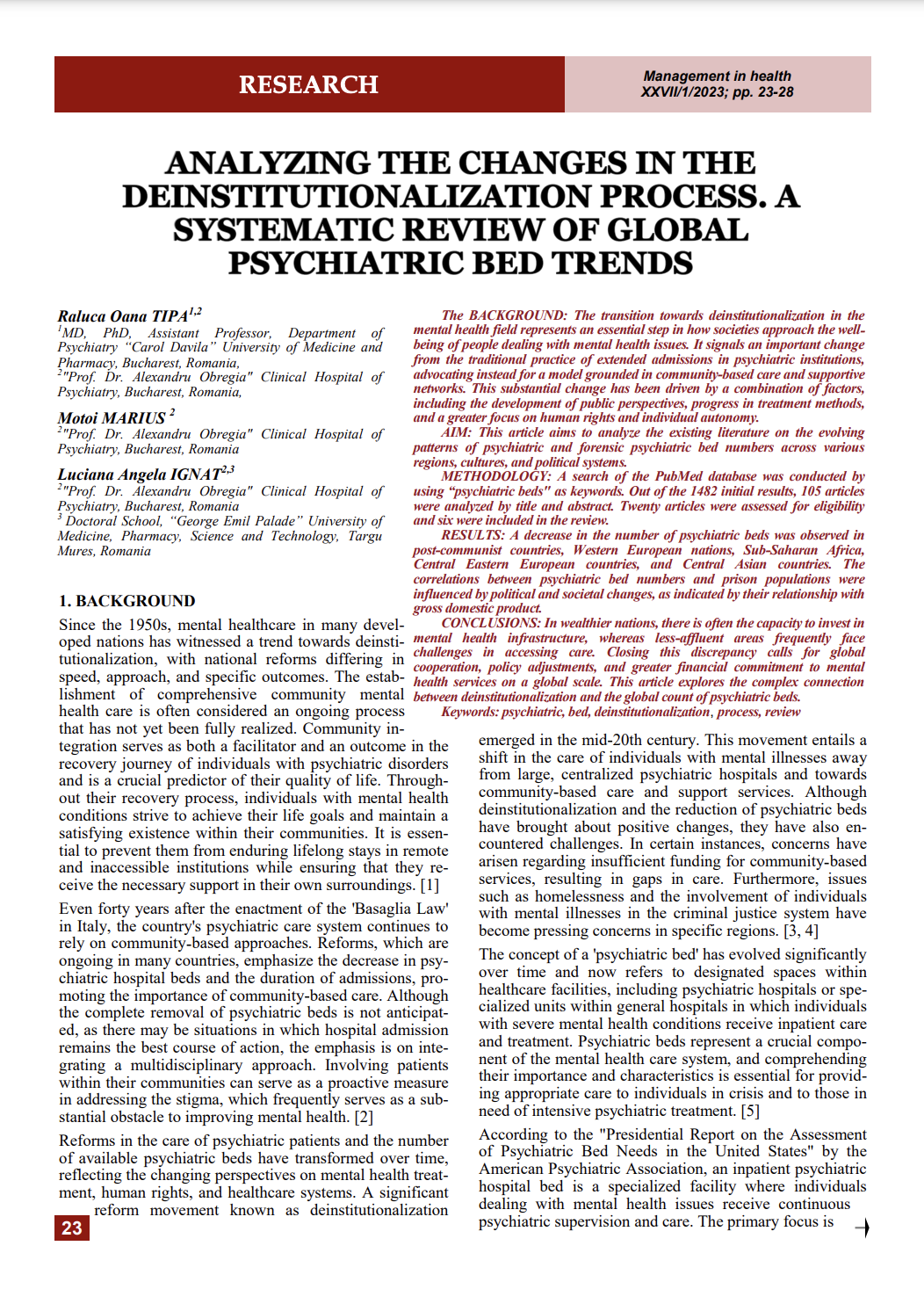Abstract
The BACKGROUND: The transition towards deinstitutionalization in the mental health field represents an essential step in how societies approach the wellbeing of people dealing with mental health issues. It signals an important change from the traditional practice of extended admissions in psychiatric institutions, advocating instead for a model grounded in community-based care and supportive networks. This substantial change has been driven by a combination of factors, including the development of public perspectives, progress in treatment methods, and a greater focus on human rights and individual autonomy.
AIM: This article aims to analyze the existing literature on the evolving patterns of psychiatric and forensic psychiatric bed numbers across various regions, cultures, and political systems.
METHODOLOGY: A search of the PubMed database was conducted by using “psychiatric beds" as keywords. Out of the 1482 initial results, 105 articles were analyzed by title and abstract. Twenty articles were assessed for eligibility and six were included in the review.
RESULTS: A decrease in the number of psychiatric beds was observed in post-communist countries, Western European nations, Sub-Saharan Africa, Central Eastern European countries, and Central Asian countries. The correlations between psychiatric bed numbers and prison populations were influenced by political and societal changes, as indicated by their relationship with gross domestic product.
CONCLUSIONS: In wealthier nations, there is often the capacity to invest in mental health infrastructure, whereas less-affluent areas frequently face challenges in accessing care. Closing this discrepancy calls for global cooperation, policy adjustments, and greater financial commitment to mental health services on a global scale. This article explores the complex connection between deinstitutionalization and the global count of psychiatric beds.

